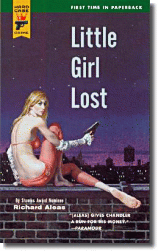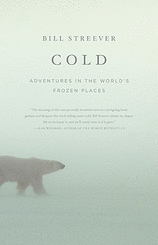John Connolly's first novel, Every Dead Thing, was published in 1999, and introduced the character of Charlie Parker, a former policeman hunting the killer of his wife and daughter. Dark Hollow followed in 2000. The third Parker novel, The Killing Kind, was published in 2001, with The White Road following in 2002. In 2003, John published his fifth novel—and first stand-alone book—Bad Men. In 2004, Nocturnes, a collection of novellas and short stories, was added to the list, and 2005 marked the publication of the fifth Charlie Parker novel, The Black Angel. John's seventh novel, The Book of Lost Things, a story about fairy stories and the power that books have to shape our world and our imaginations, was published in September 2006, followed by the next Parker novel, The Unquiet, in 2007, The Reapers, in 2008 and The Lovers, in 2009.
was published in 2001, with The White Road following in 2002. In 2003, John published his fifth novel—and first stand-alone book—Bad Men. In 2004, Nocturnes, a collection of novellas and short stories, was added to the list, and 2005 marked the publication of the fifth Charlie Parker novel, The Black Angel. John's seventh novel, The Book of Lost Things, a story about fairy stories and the power that books have to shape our world and our imaginations, was published in September 2006, followed by the next Parker novel, The Unquiet, in 2007, The Reapers, in 2008 and The Lovers, in 2009.
From Ali Karim's interview with Connolly at The Rap Sheet:
AK: I loved the supernatural elements in The Unquiet and The Lovers, more than I have your works that avoid the “woo-hoo” angles, such as The Reapers. Which do you prefer writing, straight P.I. fiction or supernatural-tinged P.I. tales?
JC: I think that the books in which the supernatural element is used feel richer and more layered to me. There are plenty of straightforward crime novelists out there, and what they do they do very well. But there are fewer, I think, who are prepared to experiment and hybridize, mainly because there still seems to be resistance to it among the more conservative sections of the genre. That comes, I think, from a fundamental misunderstanding of how it can be used.
In my books, it’s not a case of “the ghost did it.” I simply don’t find metaphysical and anti-rationalist concepts inimical or alien to the genre. I guess, if I have to defend myself, I take a wider, more inclusive view of the genre’s possibilities, and that can’t be a bad thing. Ultimately, open-minded beats narrow-minded every time.
defend myself, I take a wider, more inclusive view of the genre’s possibilities, and that can’t be a bad thing. Ultimately, open-minded beats narrow-minded every time.
AK: 2009 marks 10 years for you as a published novelist. What has the journey been like? And what have been its high and low points?
JC: Crumbs. High points? Being...[read on]
Also read
Ali Karim's 2002 interview with John Connolly for January Magazine.
--Marshal Zeringue
 Claire Zulkey edits the blog Zulkey.com. She wrote a very short humor book called Girls! Girls! Girls! as well as the newly released YA novel An Off Year.
Claire Zulkey edits the blog Zulkey.com. She wrote a very short humor book called Girls! Girls! Girls! as well as the newly released YA novel An Off Year.Being really honest about everything that makes up my characters. I think young adult readers can smell a fake much quicker than adults.



































